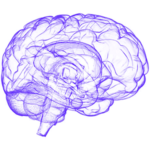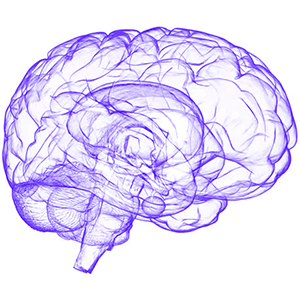Epilepsy: General Information
Key Facts
- Epilepsy is a condition that effects the nervous system
- Epilepsy is the result of an ongoing tendency to have seizures
- Seizures occur when there is uncontrolled electrical activity in the brain
- Seizures are either provoked or unprovoked
 What is epilepsy?
What is epilepsy?
Epilepsy (EH-puh-lep-see) is a condition that effects the nervous system, resulting in an ongoing tendency to have seizures. Epilepsy is usually diagnosed in children or teenagers, but can also develop later in life. In some cases, the seizures associated with epilepsy may resolve or become less frequent as the child grows.
What is a seizure?
A seizure occurs when there is uncontrolled electrical activity in the brain. A seizure may be provoked or unprovoked. When there is a reason for a seizure, it is called a provoked seizure. Other reasons for provoked seizures may be a brain injury or tumor, an infection of the brain/spinal cord (meningitis), low blood sugar (hypoglycemia), high fevers (febrile seizure), substance use and/or withdrawal, and toxins. However, in some cases, a seizure can occur spontaneously, meaning there are no factors (except uncontrolled electric activity) that provoke it to occur. A seizure can be described as a focal or a generalized seizure. Depending on the type of seizure, there may be different signs and symptoms.
Are there different types of epilepsy?
Yes, the type of epilepsy someone has depends on the type of seizure the person experiences. As we previously mentioned, there are two different types of seizures, focal and generalized.
Generalized seizures occurs when there is uncontrolled electrical activity on BOTH sides of the brain. A few different types of seizures are considered generalized, such as absence seizures, tonic-clonic seizures, and myoclonic seizures.
Focal seizures occur when there is uncontrolled electrical activity on ONE side of the brain. A person may or may not lose consciousness during a focal seizure.
What are the signs of a seizure?
Sometimes it is difficult to know whether a person is experiencing a seizure or not. Some people with epilepsy may experience shaking or stiffening of one or all limbs, twitching of the mouth or lips, movement of the eyes, slurred speech, or loss of consciousness. Other people with epilepsy may stare blankly into space. When someone experiences the physical symptoms of a seizure (shaking, stiffening, twitching, eye movements) they cannot control the symptoms.
What to do if you witness a seizure?
Seizures may be scary to watch, but generally, they are over within a few seconds to a few minutes and they are not painful to the person experiencing them.
If you witness someone experience a seizure, follow these steps to help them.
- Stay calm
- Help lower the person to flat surface, but don’t force them
- Once the person is on the ground, help roll them on to their side
- Loosen any clothing that is may be tight around the neck and remove glasses, bags, etc.
- Do not try to stop their uncontrolled movements, this means do not hold or restrain the person
- Make sure the area around the person is safe, free from objects that may hurt them if they bump into them
- Never leave a person who is seizing alone, make sure their breathing is OK
- Never put anything into a person’s mouth, this can cause an injury or choking
- Speak in a calm voice, reassuring voice, during and after the seizure.
When a seizure ends, people may be very tired or confused. These symptoms are known as the “post-ictal state,” and gradually improve after the seizure.
When to call 9-1-1:
In most cases, you will not need emergency help if this person has known epilepsy. However, here are some reasons you need to call 9-1-1 during a seizure.
- Diabetic
- Suffers an injury due to their seizure
- Develops difficulty breathing
- Changes colors (specifically blue) around their mouth
- Experiences a seizure that lasts greater than 5 minutes
- Experiences multiple seizures back to back
- Individual does not have known epilepsy
What causes epilepsy?
Epilepsy can sometimes be difficult to diagnose. However, sometimes people are born with risk factors that increases their chances of developing epilepsy. People who had abnormal brain development in utero (period of time when a baby develops) are at a higher risk for developing seizures.
What are some environmental causes of epilepsy?
When you go to an amusement park or movie theater, you may have noticed a sign or heard an announcement about the use of flashing lights and/or loud noises. This is to alert individuals with epilepsy, who may have seizures that are triggered by things in their environment. Epilepsy triggers can be bright or flashing lights, loud noises, lack of sleep, stress, and overstimulation (prolonged screen time).
How is epilepsy diagnosed?
If a person has one unprovoked seizure in their lifetime, this does not mean they have epilepsy. A diagnosis of epilepsy is usually confirmed after a person has one of the following:
- Experience two or more unprovoked seizures within a lifetime.
- One unprovoked seizure and a high probability of future unprovoked seizures based on diagnostic testing.
- An example of diagnostic testing may be, an abnormal electroencephalogram (EEG), which is a test that monitors brain activity, showing a seizure tendency
- A seizure or EEG change that fits a specific type of epilepsy.
How is epilepsy treated?
Epilepsy can be managed by taking a daily medication to prevent seizures. There are many different types of medication for epilepsy.
Is it safe to receive vaccines with epilepsy?
Yes, it is safe for all adolescents and young adults with epilepsy to receive vaccinations. It is actually encouraged because becoming sick from an infection can cause seizures to occur more frequently.
Currently, while the COVID-19 pandemic is ongoing, it is recommended that people with epilepsy receive the COVID-19 vaccination. There is no evidence currently that this vaccination will worsen epilepsy or place people at a higher risk for neurologic complications
Additional Resources: The Epilepsy Foundation is a large organization in the U.S. dedicated to giving all people with epilepsy full, healthy lives. The epilepsy website has many resources for people with epilepsy and their families and friends.
 Sometimes talking about epilepsy can be difficult – it’s normal to feel nervous. You may be concerned that others will treat you differently or there may be fear and misunderstanding about epilepsy and seizures. Talking about epilepsy can help spread awareness and demonstrate that children, adolescents, and young adults with epilepsy can lead full, active lives.
Sometimes talking about epilepsy can be difficult – it’s normal to feel nervous. You may be concerned that others will treat you differently or there may be fear and misunderstanding about epilepsy and seizures. Talking about epilepsy can help spread awareness and demonstrate that children, adolescents, and young adults with epilepsy can lead full, active lives.